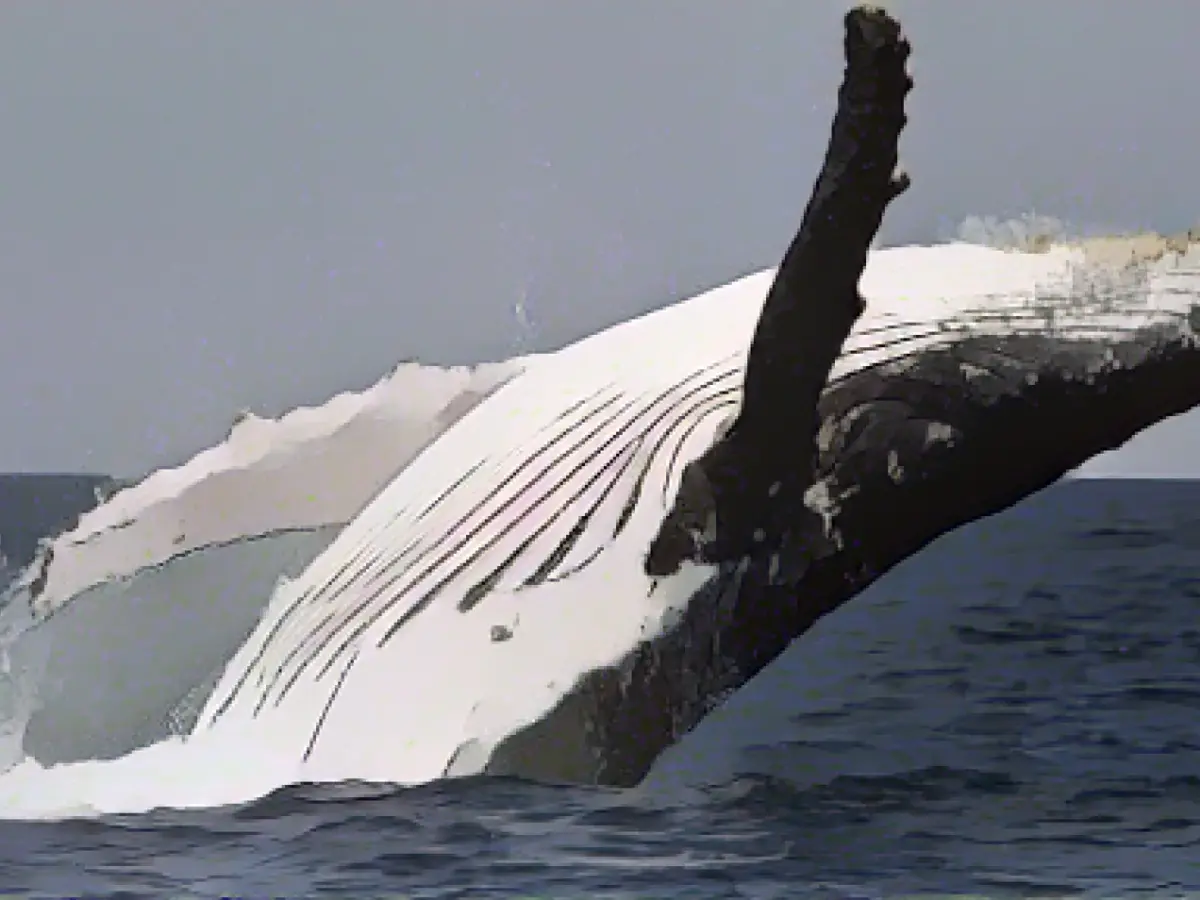COP28 - How climate change threatens whales and dolphins
The consequences of climate change are increasingly threatening whales and dolphins, according to a report by the animal welfare organization Whale and Dolphin Conservation (WDC). The warming of the oceans is having a dramatic impact on a large number of species, according to the report "Whales in Hot Water", which was published to coincide with the UN Climate Change Conference (COP28) in Dubai.
According to the report, the habitats of whales and dolphins are changing so rapidly that species are competing with each other - and in some cases fighting each other. Rising temperatures are leading to an increase in algal blooms that release toxins.
The consequences
According to the WDC, they are increasingly being found in dead whales and dolphins. The toxins could also slow down the ability of marine mammals to react. This puts them at even greater risk of colliding with ships.
According to the report, at least 343 baleen whales died in Chile in 2015 - extremely high concentrations of the paralyzing toxins were detected in more than two thirds of the animals (69 percent). "The sudden mass mortality is most likely due to an algal bloom," writes the organization.
The animals are also increasingly moving into new and sometimes heavily used waters, not least increasing the risk of collisions with ships. According to the WDC, marine mammals can also become more susceptible to disease.
Almost two thirds of disease outbreaks in whales and dolphins (61 percent) were recorded during periods of increased sea surface temperatures, which are likely to occur longer and more frequently as a result of climate change.
In some cases, there are fights between related species. Increasing heat events led to bottlenose dolphins moving to areas with Californian harbor porpoises. Bottlenose dolphins are increasingly attacking their smaller relatives there, often with fatal results.
According to the WDC, the decline in krill, one of the most important food sources for baleen whales, is also a problem. It is being decimated by industrial fishing and warmer sea temperatures. In the Southern Ocean, where the whales migrate in the polar summer, krill stocks have fallen by 30 percent since the 1980s.
A decline of 16 to 19 percent is predicted for the Pacific and Atlantic by 2100. The scarcity of food means that the marine mammals can store less fat and no longer have enough energy available for their seasonal migrations. It has also been observed that many animals no longer migrate to warmer waters to mate. Result: fewer young animals.
How the animals could still be saved
According to the organization, the Paris Agreement goal of limiting the global temperature rise to 1.5 degrees Celsius must be pursued. Effective protected areas that are of particular importance to the animals should also be established: Areas where they can feed, reproduce and migrate.
Fishing gear is also a major threat to whales and dolphins. Governments and industry must ban destructive fishing practices. There must be catch restrictions and alternative fishing gear that reduces bycatch.
Read also:
- This will change in December
- German activists speak out in Dubai on suffering in Israel and the Gaza Strip
- Nuclear fusion - hype or solution to energy problems?
- Budget crisis fuels debate on citizen's income - Bas warns against populism
- The report "Whales in Hot Water" from the Animal welfare organization Whale and Dolphin Conservation (WDC) highlights the impact of climate change on various marine species, particularly whales and dolphins.
- The warming of the oceans as a result of climate change is causing drastic changes in marine habitats, leading to competition among species and in some cases, even fighting.
- Rising temperatures and increased algal blooms release toxic substances that are causing harm to marine mammals, leading to increased mortality rates and slowing down their reaction abilities.
- The UN Climate Change Conference (COP28) in Dubai saw the publication of the report, which warned of the dire consequences of climate change on whales and dolphins.
- In Chile, at least 343 baleen whales died in 2015 due to an algal bloom, with extremely high concentrations of toxins detected in more than two-thirds of the animals.
- Marine mammals are also increasingly moving into new and heavily used waters, increasing the risk of collisions with ships and becoming more susceptible to disease.
- Warmer sea temperatures are contributing to the rise in disease outbreaks in whales and dolphins, with more than 60% recorded during periods of increased sea surface temperatures.
- Destructive fishing practices are also a major threat to whales and dolphins, and governments and industries must establish catch restrictions and alternative fishing gear to reduce bycatch.
- The WDC emphasizes the importance of pursuing the Paris Agreement's goal of limiting the global temperature rise to 1.5 degrees Celsius and establishing effective protected areas for marine mammals' feeding, reproduction, and migration.
Source: www.stern.de







